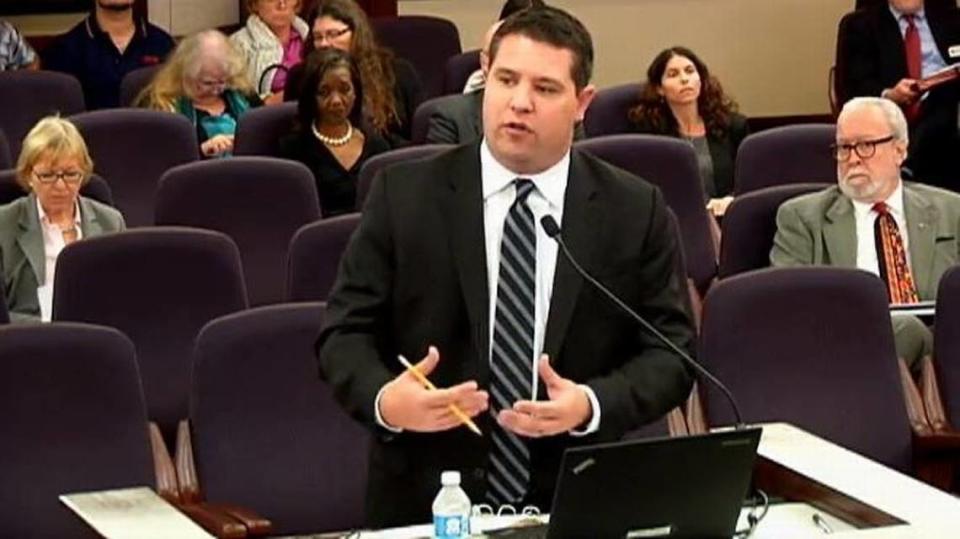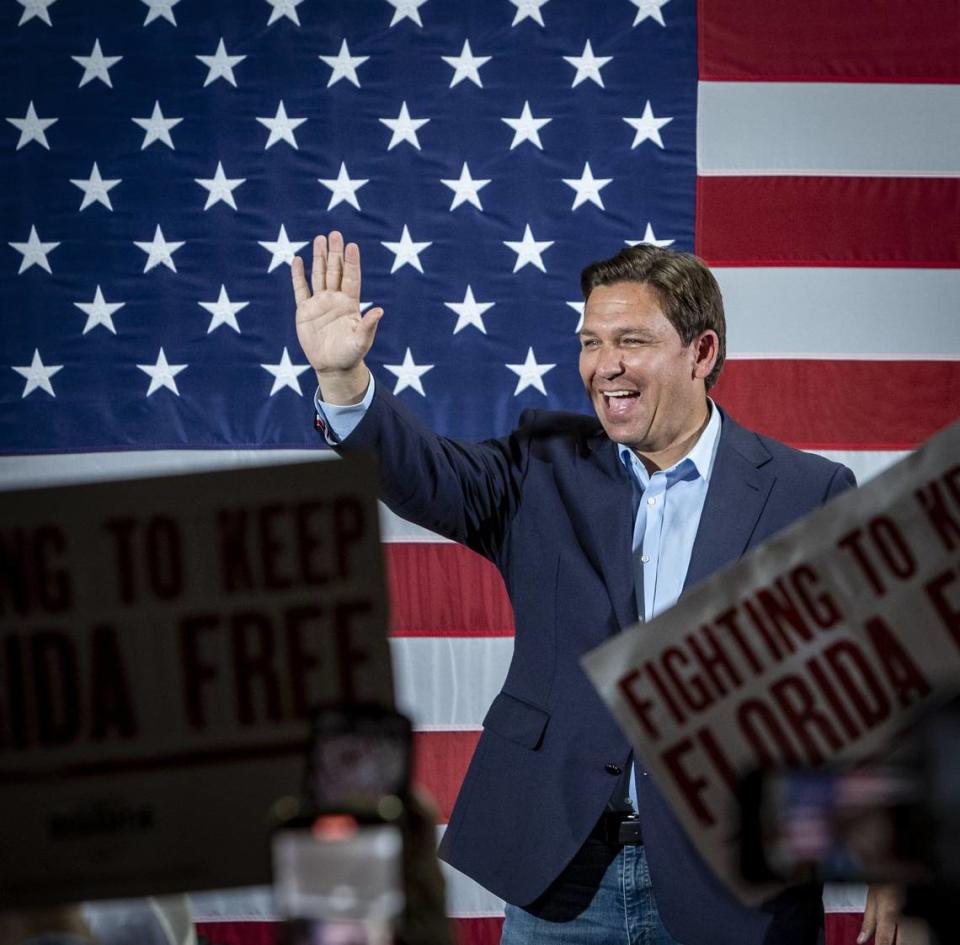Florida voters will decide in November whether to pull the plug on a program that for a quarter century allowed candidates seeking the state’s highest offices to subsidize their campaigns with public money.
Amendment 6, one of six ballot measures Floridians will consider this fall, seeks to end public financing of campaigns for governors and cabinet positions such as attorney general.
Voters rejected a similar proposal in 2010. But the state Legislature voted this year to see whether, given a second chance, Floridians would end a practice that since 2010 has directed more than $33 million in taxpayer money to political campaigns. .

Sen. Travis Hutson, a Palm Coast Republican, sponsored the resolution that brought the proposed constitutional amendment to this year’s vote. Hutson, who did not respond to multiple requests for comment, said during this year’s legislative session that repealing public campaign financing would allow taxpayer dollars to be put toward other needs.
“This is general revenue money and I believe we should turn the issue back to voters to see if they would like us to spend general revenue on things other than advertising for state offices,” Hutson said during an Ethics and Elections Committee. meeting.
According to a Senate bill analysis, more than $13 million in taxpayer dollars went to candidates running for governor and the three state Cabinet positions in 2022, the last time those positions were on the ballot. Governor Ron DeSantis received more than $7 million in public funds to boost a campaign that raised around US$200 million. His Democratic opponent, Charlie Crist, received more than $3 million in public money.
RELATED CONTENT: What to know about Florida Amendment 1, the school board election question
But critics of the change worry that eliminating public financing of campaigns will discourage people from running for public office.
Common Cause Florida board member Ben Wilcox told the Miami Herald that if Amendment 6 passed, it would be bad for the integrity of elections and public policy.
“Corporations and wealthy individuals who make campaign contributions would have more ability to influence our elections,” Wilcox said. “Candidates who are unable to access this type of funding and who rely on smaller donations from individuals would harm those candidates’ chances of winning and empower large campaign donors to have more influence on public policy.”
READ MORE: What to know about Florida Amendment 2, the hunting and fishing ballot question
How does public campaign financing work in Florida?
In 1998, Florida voters enshrined in the state constitution the ability for candidates running for governor and other state cabinet positions to qualify for public money to subsidize their campaigns.
The program provides candidates with matching funds from state coffers, under the condition that they impose some modest restrictions on the amount of money spent on their campaign.


Candidates for governor, for example, must agree to spend no more than $2 per registered voter, although they can spend more if a candidate who does not receive public money exceeds that same limit.
Only personal contributions from Florida residents to a candidate’s official campaign account are eligible for matching funds, limited to $250 per person. Contributions from companies and political committees are not matched.
HIGHER EDUCATION: What does the marijuana amendment that Floridians will vote on really say?
What do critics say about Amendment 6?
Wilcox says public campaign financing has allowed a wider range of candidates to run for office in Florida and given candidates with fewer resources a way to be competitive in elections.
“When you have a candidate who has access to large campaign contributions versus a candidate who doesn’t have that type of financing, public campaign financing acts as a way to level the playing field between those two candidates,” Wilcox said.
In 2010, the last time Floridians considered ending the program, a majority of voters wanted it eliminated, but the ballot question failed because it did not receive 60% support.
READ MORE: What You Need to Know About Florida’s Amendment 5 Property Tax Ballot Question
Wilcox believes Floridians will vote against Amendment 6 again this fall, saying there has been no “public outcry” to end public campaign financing. He can only guess why lawmakers have once again brought this issue up for a vote.
“I think there are some legislators who are philosophically opposed to spending public money on elections for campaigns and they are probably the ones who benefit from a system where there is no public financing of campaigns,” Wilcox said. “They are likely benefiting from large campaign contributions coming from wealthy individuals and corporations, so they see no need to level the playing field with candidates who do not have access to this type of funding.”
Although the initiative to repeal public campaign financing was promoted by Republican lawmakers, Wilcox says both Democratic and Republican candidates benefited from public funds for their campaigns.
Wilcox says that as Floridians are deciding how they will vote on Amendment 6, he hopes they will ask themselves whether public policy should be based on “the public interest” or the “influence of wealthy corporations.”
“Typically in Florida elections, there are companies in the state that spend hundreds of thousands of dollars supporting candidates and those companies want something in return for that money. They’re not making a $100,000 contribution in the interest of good government, they expect government to be good to them,” Wilcox said.





































